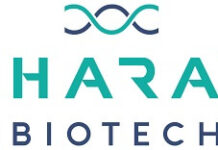Swiss pharmaceutical giant Novartis announced promising results on Monday from its late-stage trial of onasemnogene abeparvovec (OAV101 IT), a gene therapy designed to improve motor function in children with spinal muscular atrophy (SMA), a rare muscle disorder that severely impacts mobility and the ability to perform basic tasks like walking, talking, and swallowing.
As reported by medscape.com, the trial included over 100 patients aged 2 to under 18 with type 2 SMA, a form of the disease where patients can sit but have never walked and had not previously received treatment. Participants who received the one-time therapy demonstrated significant improvements in motor skills such as sitting, rolling, crawling, and standing compared to those given a sham procedure, as assessed by a widely used measurement scale.
SMA, the leading genetic cause of infant mortality, affects about 1 in 10,000 people and is caused by the body’s inability to produce a protein critical for neuromuscular development. The disorder is categorized into five types based on symptom onset and severity.
Novartis’ therapy, branded as Zolgensma, is already approved in the United States for children under 2 years of age with SMA. The current trial expands its potential use to older patients, where maintaining motor function is critical for independence, according to Dr. Crystal Proud, the principal investigator at Children’s Hospital of The King’s Daughters.
OAV101 IT showed a favorable safety profile, with common side effects including upper respiratory tract infections, fever, and vomiting. Novartis plans to share the study results with regulatory authorities next year.
Other approved SMA treatments include Biogen’s Spinraza, a spinal injection, and Roche-PTC Therapeutics’ oral drug Evrysdi. The latest findings from Novartis could further advance therapeutic options for older patients with SMA, offering hope for improved quality of life.
























